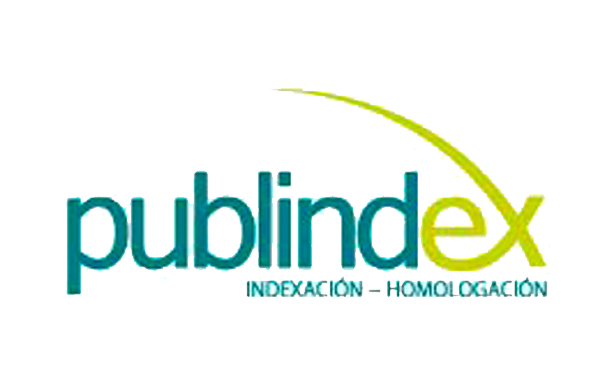Teachers' jargon. A look at its transformations from the technological mediation of teaching processes
DOI:
https://doi.org/10.18634/sophiaj.21v.1i.1507Keywords:
teacher jargon, technological mediation, educational sociolinguistics, linguistic adaptationAbstract
Teacher jargon is a sociolinguistic phenomenon in constant transformation. Since 2020, the technological mediation that emerged from the Covid-19 pandemic has intensified these changes, generating new forms of pedagogical communication. This article analyzes the evolution of teacher jargon in a public school located in the municipality of Soacha (Cundinamarca), through semi-structured interviews conducted with ten primary school teachers. The study is guided by five mechanisms of linguistic change: adaptation, imitation, necessity, external influence, and interest. The results show that the adaptation of teacher jargon is closely linked to the incorporation of educational technologies, which manifest in various teaching contexts. Likewise, the imitation of everyday processes and other school actors contributes to more effective communication, closer to students’ needs, and strengthens meaningful learning. Communicative needs, shaped by institutional guidelines, and external factors such as evaluation and curriculum planning policies also influence the current pedagogical discourse. Finally, teachers’ interest in remaining up to date through the integration of technological tools stands out, reaffirming their role as active agents in the linguistic and communicative transformation of contemporary educational practice.References
Ausubel, D. P. (2002). Adquisición y retención del conocimiento. Una perspectiva cognitiva. Paidós ibérica https://books.google.com.cu/books?id=VufcU8hc5sYC&printsec=frontcover&source=gbs_vpt_read#v=onepage&q&f=false
Bernstein, B. (2003). Class, codes and control: Applied studies towards a sociology of language (Vol. 2). Routledge https://books.google.com.cu/books/about/Class_Codes_and_Control_Applied_studies.html?id=mQk3Hw0TKtsC&redir_esc=y
Bruner, J. S. (1995). El proceso de la educación. Editorial UTHEA.
Cheshire, J. (2013). Sociolinguistics in the classroom: exploring linguistics diversity. En L. Milroy, J. Milroy (Ed.). Real English: The Grammar of English Dialects in the British Isles. (pp.32-51). Routledge https://www.researchgate.net/publication/274364652_Sociolinguistics_in_the_classroom_exploring_linguistic_diversity
Clark, R. C., Mayer, R. E. (2016). E-Learning and the Science of Instruction: Proven Guidelines for Consumers and Designers of Multimedia Learning. Wiley. https://onlinelibrary.wiley.com/doi/book/10.1002/9781119239086
Coll, C., & Monereo, C. (2010). Educación y aprendizaje en el siglo XXI: Competencias, retos y agendas. ICE-Horsori
Crystal, D. (2019). The Cambridge encyclopedia of the English language (3rd ed.). Cambridge University Press. https://www.cambridge.org/highereducation/books/the-cambridge-encyclopedia-of-the-english-language/2B10AC8766B73D09955C899572C1E7EC#overview
Crystal, D. (2003). The Cambridge Encyclopedia of the English Language. Cambridge university press https://www.cambridge.org/highereducation/books/the-cambridge-encyclopedia-of-the-english-language/2B10AC8766B73D09955C899572C1E7EC#overview
Engelbard, D. (1963). A conceptual framework for the augmentation of man´s intellect. VI Spartan books https://dougengelbart.org/pubs/augment-133183-AHI-Vistas.html
Fairclough, N. (2006). Language and globalization. Routledge. https://www.researchgate.net/publication/272558986_Language_and_Globalization
Fairclough, N. (2013). Critical discourse analysis: The critical study of language (2nd ed.). Routledge https://freight.cargo.site/m/J2012282395688688398324189080611/9781315834368_previewpdf.pdf
Fishman, J. (1988). Sociología del lenguaje. Ediciones Cátedra.
Fishman, J. (1972). The Sociology of Language. An interdisciplinary social science approach to language in society. Newbury house https://books.google.com.cu/books/about/The_Sociology_of_Language.html?hl=es&id=Xw1iAAAAMAAJ&redir_esc=y
Freire, P. (1986). Pedagogía del oprimido. Siglo XXI editores https://www.servicioskoinonia.org/biblioteca/general/FreirePedagogiadelOprimido.pdf
Gardner, H. (2001). La inteligencia reformulada. Las inteligencias múltiples en el siglo XXI. Paidós ibérica https://books.google.com.cu/books/about/La_inteligencia_reformulada.html?id=E6PUQzaL9FEC&source=kp_book_description&redir_esc=y
Gee, J. P. (2015). Social linguistics and literacies: Ideology in discourses (5th ed.). Routledge. https://saidnazulfiqar.wordpress.com/wp-content/uploads/2008/04/gee-j-p-2008-sociolinguistics-and-literacies.pdf
Gumperz, J. (1982). Discourse strategies. Cambridge university press https://www.cambridge.org/core/books/discourse-strategies/46D4D801BCC1FF7E6E31B2A19E45E92B
Halliday, M. (1978). El lenguaje como semiótica social. Fondo de cultura económica. https://hugoperezidiart.com.ar/sigloXXI-cl2012/halliday-1979.pdf
Hodges, C., Moore, S., Lockee, B., Trust, T., & Bond, A. (2020). The difference between emergency remote teaching and online learning. Educause Review, 27(1), 1–12. https://www.researchgate.net/publication/340535196_The_Difference_Between_Emergency_Remote_Teaching_and_Online_Learning
Holmes, J. (2013). An Introduction to Sociolinguistics. Routledge. https://www.researchgate.net/profile/Mohammad-Al-Khresheh/post/Sociolinguistics-theoritical-framework-for-beginner/attachment/5c84cfb5cfe4a72994945add/AS%3A734826910978055%401552207796737/download/SOCIOLINGUISTICS.pdf
King, N., & Horrocks, C. (2019). Interviews in qualitative research. Sage.
Labov, W. (1983). Modelos sociolingüísticos. Ediciones cátedra. https://lintres.wordpress.com/wp-content/uploads/2013/06/labov-modelos-sociolingc3bcisticos1.pdf
Leontyev, A. (1975). Activity and consciousness. Prentice-Hall. https://www.marxists.org/archive/leontev/works/activity-consciousness.pdf
Martínez Ruiz, W. L. (2025). Concepto de jerga docente en el marco de la mediación tecnológica de los procesos de enseñanza. Revista Foco, 18(8), e9367. https://doi.org/10.54751/revistafoco.v18n8-051
McLuhan, M. (1996). Comprender los medios: Las extensiones del hombre. Paidos. https://semioticaderedes-carlon.com/wp-content/uploads/2018/04/McLuhan_Marshall__Comprender_los_medios_de_comunicacion.pdf
Mendoza-Denton, N. (2008). Homegirls: Language and Cultural Practice Among Latina Youth Gangs. Blackwell publishing. https://www.google.com/url?sa=t&source=web&rct=j&opi=89978449&url=https://onlinelibrary.wiley.com/doi/book/10.1002/9780470693728&ved=2ahUKEwic9s-5-qaQAxUsTjABHTNPC9QQFnoECBAQAQ&usg=AOvVaw3qE4jD2FjLMw6wzFJHxbJ7
Montessori, M. (1912). El método Montessori. Dover publicaciones.
Mora, L. A. (2023). Cómo validar una entrevista de preguntas abiertas: una propuesta para investigación filosófica empírica. Revista Saberes Educativos, 11(1), 1-25. https://sabereseducativos.uchile.cl/index.php/RSED/article/view/71389/73709
Downloads
Published
Issue
Section
License
Creative Commosn Licence 4.0








